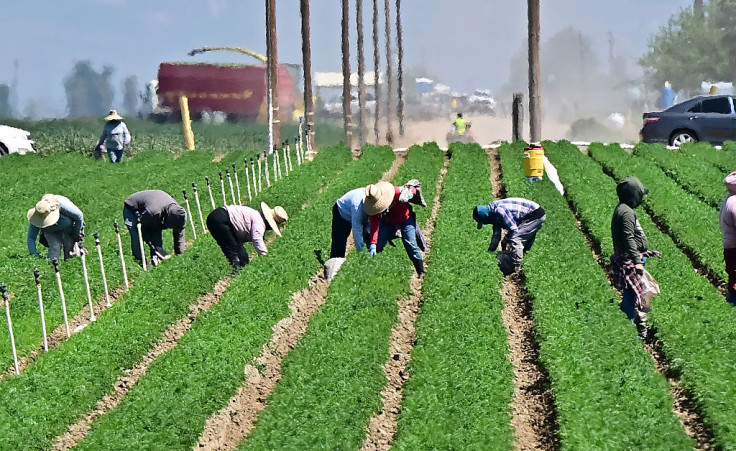
Immigrants across the U.S. are not showing up to work in fear of immigration raids as the Trump administration ramps up enforcement operations to conduct massive deportations.
A sprawling report by Bloomberg noted that the U.S. workforce shrank in May in part due to a decline in foreign-born workers. The situation is particularly significant in industries like farming and hospitality.
In California alone, mass deportations could lead to a $275 billion loss in economic output and reduce tax revenue by as much as $23 billion per year, according to a recent study from the Bay Area Council Economic Institute and the University of California at Merced.
Shay Myers, who runs Parma, one of the country's largest onion farms, warned that "we will not feed our people without these workers," considering that the Department of Agriculture estimates that over 40% of industry workers are undocumented. Overall, immigrants make up 4.6% of the U.S. workforce— more than 7 million people.
As warnings mounted, Trump recently suggested that workers from the mentioned industries could be exempted from enforcement operations. However, over the following days officials issued contradicting messages.
On Thursday, White House border czar Tom Homan said immigration enforcement raids will continue at places like hotels and farms, but claimed people with criminal records will be prioritized.
It was the latest announcement related to the industries following several comings and goings over the past weeks. "The message is clear now that we're going to continue doing worksite enforcement operations, even on farms and hotels, but based on a prioritized basis. Criminals come first," Homan said.
The official went on to say that operations are "based on criminal information, criminal investigations such as forced labor, such as trafficking and such as ... tax fraud and money laundering."
Last week, ICE officials reportedly told staff in an internal email to largely lay off raids and arrests in the agricultural, hotel and restaurant industries. However, the pause did not last long. By Sunday, Trump had publicly reversed his previously proposed policy entirely, ordering agents via a Truth Social post to deliver what he called the "single largest Mass Deportation Program in History"— focusing particularly on America's largest cities, almost all being run by Democrats.
By Tuesday, the workplace raids were seemingly back on track, when ICE agents raided Delta Downs, a horse racing track in Vinton, Louisiana, rounding up nearly 100 equine caretakers, some of whom fled the scenes as drones swarmed overhead, according to Eric J. Hamelback, chief executive of the National Horsemen's Benevolent and Protective Association.
The shifting stance has created confusion among employers, Bloomberg detailed. In California's agricultural Ventura County and downtown Los Angeles' Fashion District, some areas have seen large declines in worker attendance following immigration raids. The LA Fashion District reported a 40% drop in casual visits and a 24% drop in employee attendance since a major ICE operation on June 6.
There are competing views within the administration. While some officials, led by White House deputy chief of staff Stephen Miller, have pushed for broad enforcement, others like Agriculture Secretary Brooke Rollins have expressed concern about labor shortages. Industry groups are lobbying for reform, including a streamlined guest-worker system.
© 2025 Latin Times. All rights reserved. Do not reproduce without permission.





